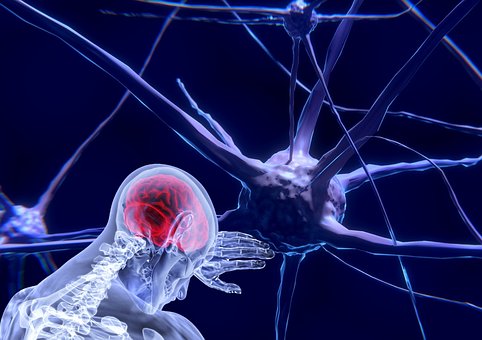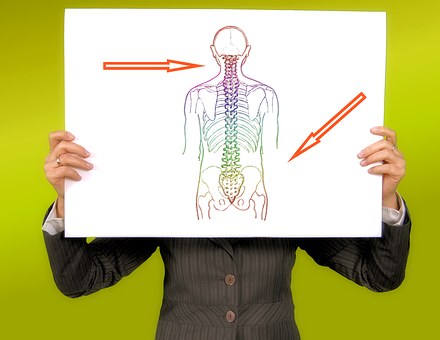One of the most common disorders that can affect an individual is back pain. Everything can be fine this minute and the next minute, snap, you have a back sprain. Some jobs require sitting down for hours, and such professionals may experience constant back pain for a long time. This is a menacing issue as it has even led to the dependence on pain killers, opioid, and illicit drugs. Back pain can be experienced alongside several other medical conditions. The mental health of many people has been affected, while the social and financial health of others suffers. Backache can also be acute and be relieved with home remedies or through the proper use of prescribed analgesics.
So many issues can precipitate your back pain such a herniated disc. According to a survey, people as low as 14 years can have herniated disc likewise folks as old as 82 years. Some adults are likely to have a herniated disc problem in their lifetime regardless of their age. A herniated disc is an ailment that is often experienced in the lower back as it also occurs in other areas of the back. This is referred to sometimes as a protruding or ruptured disc. When a disk also begins to bulge, it could be called a herniated disc. It turns out to be implicated in lower back pain, sciatica, and leg pain.
Research has it that the cause of lower back pain and leg pain in 60% to 80% of the people that suffer these ailments is a herniated disc. When an individual suffers from a herniated disc, he ends up experiencing much pain. The person may later get better in weeks and sometimes months with non-surgical treatment.
A herniated disc is the bulging out of the annulus, a fragment of a vertebra disc’s nucleus, into the spinal canal through a rupture or a tear in the annulus. This herniated disc is often at the early stages of degeneration as the canal of the spine has a restricted space for the spinal nerves and disc fragments that are already displaced. This leads to severe pain that is as a result of the displacement of the spinal nerves and the disc pressing on each other. The pain is also felt in particular areas of the spine that has been affected.
Causes of Herniated Disk
Because the herniated disc can occur in any part of the spine, it is vital to know the causes of a herniated disc and all the pains that it brings. When you experience a severe strain, it can lead to a herniated disc, but it naturally fizzles out as you get older. However, it may lead to the weakness of the ligament that firmly holds it in place. When there is a degeneration of the back sprain, it is possible it could rupture the herniated disc. Some individuals have a genetic case of vertebra disc problems which could lead to suffering herniated discs in so many areas of the spine.
Signs and Symptoms
So how would you know that you have herniated disc, it is crucial for us to understand the symptoms of herniated discs so that we would know how to prevent it. Before we start considering the symptoms of a herniated disc, we need to know the position of the herniated disc and its size.

- Pressure on the Nerves
For example, when the herniated disc is not exerting serious pressure on the nerves then, there might be back pain or no pain at all. On the other hand, if an enormous pressure is exerted on the nerves, the individual might feel numb and weak in the different areas of the body where the nerves travel. The individual might also feel pain at the lower part of the back.
- Sciatica
Another symptom comes with people suffering from sciatica. This occurs too as a result of the herniated disc in the lower back. A feeling of pressure caused by exertion on several nerves that are connected to the sciatic nerve. This results in pain, numbness, and tingling that radiates from the buttocks to the legs, and into the foot. The pain is expressed often as an electric shock, a sharp feeling. It occurs when the individual is walking, sitting, or standing. The pain can become severe.
Other Risk Factors
Other factors contribute to the risk of having a herniated disc problem, which we neglect in our daily lives. People express a high level of lackadaisical attitude to such factors, and consequently, it may lead to a herniated disc.
- When you lift objects improperly, the muscle at the back begins to suffer. When lifting a heavy object, you are supposed to make use of the legs, not the back muscle as it can lead to a herniated disc. When lifting an object and you twist, the back becomes endangered. This means that for you to protect your spine from developing a herniated disc, you should lift heavy objects with a little squat to involve the muscles of your
- If you fall within the age region of 20 to 50, there is a possibility that you could suffer from a herniated
- Another risk factor of a herniated disc is when you live a sedentary lifestyle. You are advised to watch your weight as it puts much pressure on the spine, especially in your lower back that is susceptible to herniated disc injury. It is necessary to exercise regularly as it helps you prevent multiple health conditions, including a herniated
- Frequent driving can also increase the individual’s risk of developing a herniated When you stay in a car for a very long period regularly, you begin to feel the vibration from the car engine, and this can exert pressure on your vertebral disc.
. When you are continuously involved in activities that could affect your spine, there is all tendency that you would have herniated disc. These are very demanding activities such as
- Bending
- Lifting
- Twisting
- Pulling
- Individuals that smoke are believed to be at risk of having herniated disk because smoking reduces that supply of oxygen to the spine, which leads to a fast-tracked
Finally, the cases of herniated disk do not require surgery for treatments. The treatment of herniated disk often begins with non-surgical, conservative methods. This involves subtle painless activity and bed rest for a while.




